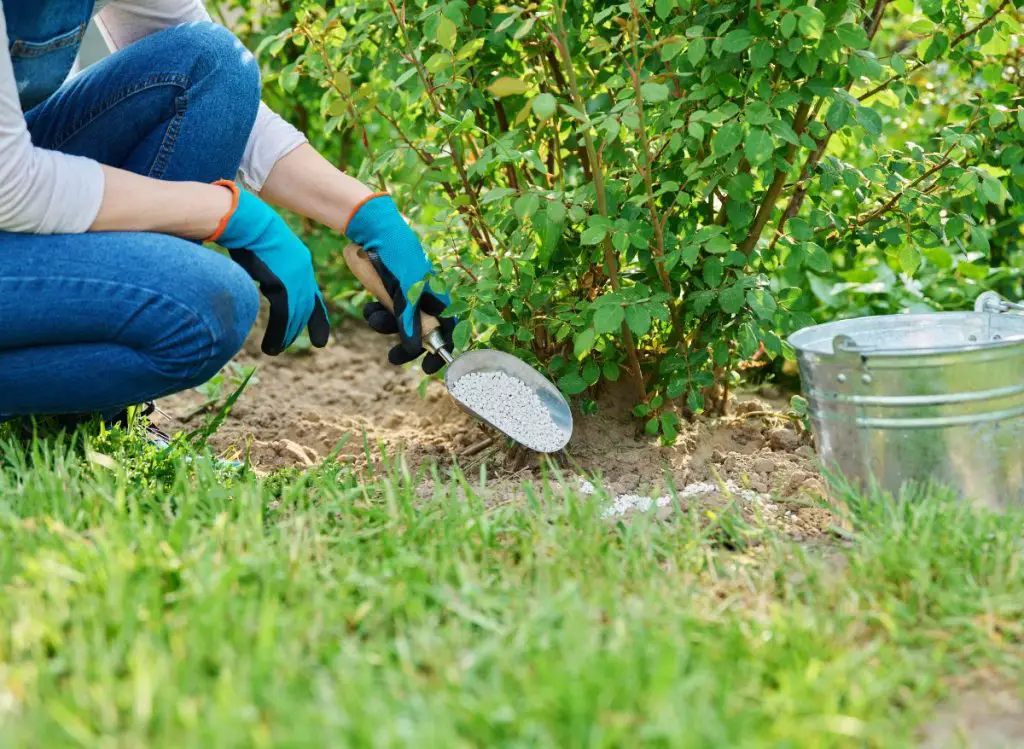
Granular fertilizers are generally incorporated into granules and are widely used in agriculture and horticulture for their nutrient-rich composition (Source: Michigan State University). They are easy to use and can be applied to the soil surface or mixed into the soil for proper plant growth and development.
But you might be wondering how long does it take for granular fertilizer to dissolve? In general, granular fertilizer can take 24 to 48 hours to dissolve completely. One of the best ways to dissolve granular fertilizer in water is by soaking 1 cup of dry granules with 1 gallon of water and stirring the mixture frequently to make sure all solids are dissolved.
Read on to find out all the factors that affect the dissolving of granular fertilizers and how long they take to dissolve completely. Check out this article to explore the best ways to dissolve granular fertilizer in water effectively.
Factors Affecting the Dissolving of Granular Fertilizers
Granular fertilizers are widely used in agriculture and gardening because of their effectiveness in supplying plants with essential nutrients.
In general, granular fertilizers are made up of small, solid granules that contain all the essential nutrients that plants need to grow and thrive. In order for these granules to release the nutrients, they have to dissolve in soil moisture.
Here are the key factors affecting the dissolving of granular fertilizers:
1- Soil Type
The type of soil plays a significant role in the dissolving of granular fertilizers. Generally speaking, the soil’s composition, structure, and pH affect the rate at which the granules dissolve and release nutrients into the soil.
For example, if the soil has a high clay content, it can slow down the dissolution process, while sandy soil can increase the rate of dissolution.
Alkaline soils (with a pH level above 7) are generally less soluble than acidic soils (with a pH level below 7), making it more challenging for plant roots to soak necessary nutrients (Source: MasterClass)
2- Moisture
In general, granular fertilizers can take anywhere from a few days to several weeks to completely dissolve in soil moisture.
For example, water-soluble fertilizers such as urea can dissolve in a matter of days. According to the University of Minnesota, Urea is highly water soluble and dissolves as soon as it is applied to the soil.
In other words, water also plays a crucial role in dissolving granular fertilizers. Inadequate moisture levels in the soil can cause granules to remain intact without releasing nutrients into the soil. Similarly, heavy rainfall or flooding can wash away the granules and prevent them from dissolving at all.

3- Temperature
Temperature also affects the speed at which granular fertilizers dissolve. Also the amount and frequency of rainfall or irrigation also affect the dissolving time of granular fertilizers.
Warm temperatures can accelerate the disintegration of granules and increase nutrient release, while cold temperatures can slow down the process.
4- Granule Size
The size of granules also affects the rate at which they dissolve. Smaller granules have a larger surface area, making them dissolve faster than larger granules because they have more surface area exposed to soil moisture.
The size of fertilizer granules can influence the distribution of nutrients. Also, small granules provide a better distribution of nutrients. The Pennsylvania State University suggests when buying a fertilizer, look for a product with uniform particle sizes and minimal broken granules.
5- Soil Microorganisms
Soil microbes, such as fungi and bacteria, play an important role in decomposing organic matter and releasing nutrients in the soil. If you want to explore more about the process of decomposition, I encourage you to check out the Texas A&M University System.
Soil microorganisms also contribute to the breakdown of granular fertilizers and can influence the duration of nutrient release.
How Long Does it Take for Granular Fertilizer to Dissolve?
Synthetic fertilizers are usually immediate, and organic fertilizers generally take two to six weeks to break into the soil, depending on the soil, temperature, moisture, and granule size. Furthermore, controlled-release fertilizers can extend the nutrient release period up to three months or more, making them ideal for slow-growing plants that require a consistent supply of nutrients.
What to read next:
- Differences Between Fertilizer And Plant Food.
- How To Effectively Turn Granular Fertilizer Into Liquid.
- How to Easily Make Liquid Fertilizer from Dry Fertilizer (with helpful steps!)
- How Long Does Fertilizer Last in Grass (Let’s find out now!)
Final Thoughts
The time a granular fertilizer takes to dissolve entirely depends on various factors such as soil type, moisture, temperature, granule size, soil microorganisms, the solubility of the fertilizer, and the amount and frequency of rainfall or irrigation.
I believe that it is important to keep the factors outlined in this article in mind when applying granular fertilizers so that you can get the most out of them.
The good news is that when fertilizers dissolve quickly, they provide plants with a quick boost of nutrients, while slow-release fertilizers offer sustained benefits over a longer period of time.

